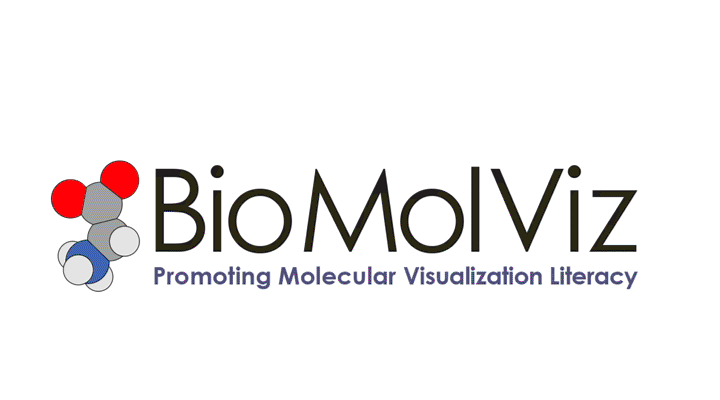Rendering Visual Literacy: The BioMolViz Project

Biochemistry and molecular biology educators use images extensively to depict pathways, macromolecules, and molecular interactions. Often, these figures are presented to students without explicit guidance about how to interpret the image or why a particular rendering was used in a certain context. Consequently, our students may not "see what we see" and lack the visual literacy skills needed to build expertise in biochemistry and molecular biology.

To address the need for explicit instruction, BioMolViz developed a Biomolecular Visualization Framework that defines 12 Overarching Themes in visual literacy. The themes are broad biomolecular visualization topics, which are divided into learning goals and objectives that define a specific task the student should be able to perform.
Using the Framework, BioMolViz trains instructors to develop assessments to evaluate learners' visualization skills. Through interactive workshops—held online this year due to the pandemic—educators create assessments that target biomolecular visualization skills. These team-developed instruments are revised by another group of instructors, evaluated by a panel of experts, and then validated in the classroom. Our goal is to create an online repository of high-quality assessment instruments for instructors to use to evaluate visual literacy skills in their courses. Our process encourages the collaborative development of assessment strategies, which has the added benefit of enriching the pedagogy of our growing community of educators.

BioMolViz is currently a team of 10 U.S.-based members from diverse colleges and universities. We are interested in extending our growing community internationally. If you are interested in participating in an assessment writing workshop or other collaborations, contact us at [email protected]. You can keep up with our news, events, and favorite resources for teaching biomolecular visualization at http://biomolviz.org/





Join the FEBS Network today
Joining the FEBS Network’s molecular life sciences community enables you to access special content on the site, present your profile, 'follow' contributors, 'comment' on and 'like' content, post your own content, and set up a tailored email digest for updates.